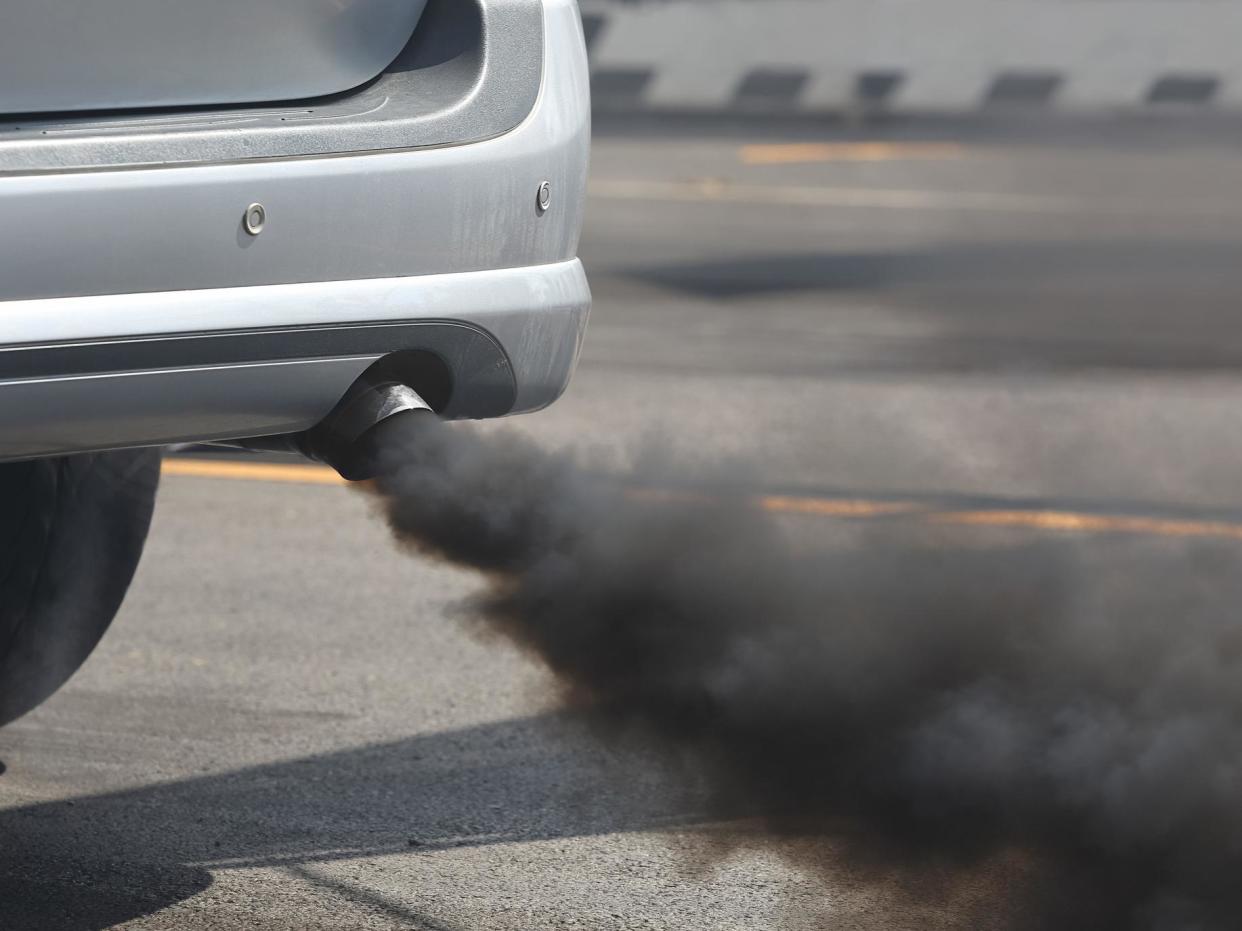Ban new petrol and diesel cars by 2032 instead of current ‘unambitious’ target, MPs say

MPs have called for a ban on new petrol and diesel vehicles to be brought forward to 2032, calling current government plans “vague and unambitious”.
Urging ministers to “get a grip”, the parliamentary business committee said the government must invest in new charging points and phase out high-polluting vehicles to encourage the switch to electric models.
Transport is the biggest contributor to the nation’s climate-harming carbon emissions, and air pollution from cars has reached dangerous levels in many British cities.
In response to these threats, the government has announced its intention to make all new cars and vans “effectively zero-emission" by 2040.
However, the new report by the parliamentary business committee echoed many environmental groups in calling for a stricter and clearer deadline, in lines with several other nations.
Norway has pledged to ban petrol and diesel vehicles by 2025, and India by 2030. Even the Scottish government has said it will outdo the UK by phasing them out by 2032.
Citing the recent report by the Intergovernmental Panel on Climate Change, the committee said the government needed to encourage changes in consumer behaviour to decarbonise the economy and tackle climate change.
“The UK government’s targets on zero-emissions vehicles are unambitious and vague, giving little clarity or incentive to industry or the consumer to invest in electric cars,” said committee chair and Labour MP Rachel Reeves.
Ministers have previously set out their intention to make the UK a “world leader” in electric vehicles, but in the MPs said that grants and tax incentives for these vehicles are currently only available to the wealthy.
“If we are serious about being electric vehicle world leaders, the government must come forward with a target of new sales of cars and vans to be zero emission by 2032,” said Ms Reeves.
She added that charging infrastructure in the UK is currently “not fit for purpose”. The report called for charge points in remote and rural areas to be subsidised by the government instead of leaving local governments or private companies to fund them.
“The government needs to get a grip and lead on coordinating the financial support and technical know-how necessary for local authorities to promote this infrastructure and help ensure that electric cars are an attractive option for consumers,” said Ms Reeves.
The MPs also criticised the decision to cut the Plug-in Grant scheme, which effectively put incentives to buy electric vehicles into reverse.
Government advisers the Committee on Climate Change have made it clear that government plans so far to clean up transport have been insufficient.
Simon Alcock from environmental lawyers ClientEarth, who have successfully taken the government to court three times over its illegal air pollution, agreed that the ban on dirty vehicles must come sooner.
“It beggars belief that the government is making it more expensive to buy cleaner vehicles when we have illegal levels of pollution in our towns and cities by slashing the Plug-in Grant scheme,” he said.
“This is another example of the government failing to protect the people of this country from breathing dirty air.”
Greenpeace clean air campaigner Morten Thaysen said with UK carbon emissions falling just 2 per cent since 1990, a phase-out date of 2040 is too late.
“We need 100 per cent electric car and van sales by 2030 if the government is serious about meeting its obligations under the Paris agreement,” he said.
However, highlighting the current low uptake of electric cars, Mikes Hawes of trade association the Society of Motor Manufacturers and Traders said the target set by committee was too ambitious.
“Government’s 2040 ambition was already extremely challenging, so to fast-track that by eight years would be nigh on impossible,” he said.
“Zero emission vehicles make up just 0.6 per cent of the market meaning consumer appetite would have to grow by some 17,000 per cent in just over a decade.”
Speaking at a major electric vehicle summit in Birmingham in September, director-general of the Confederation of British Industry Carolyn Fairbairn welcomed the transition to zero-emissions vehicles but said it would present “the greatest set of technical challenges since the space race”.
Responding to the report, a government spokesperson said: “Our Road to Zero Strategy outlined our ambition for the UK to be the best place in the world to build and own an electric vehicle.
“As part of this, we want between 50 per cent and 70 per cent of new car sales to be ultra-low emission by 2030, and for all new cars and vans to be effectively zero emission by 2040.
“And we also outlined measures to bring forward a major uplift in electric vehicle charging infrastructure, paving the way for the widespread adoption of ultra-low emission vehicles.”

 Yahoo News
Yahoo News 
